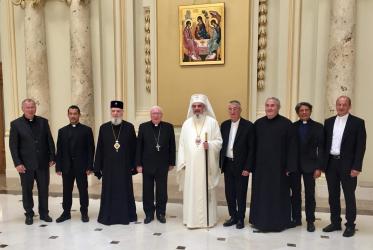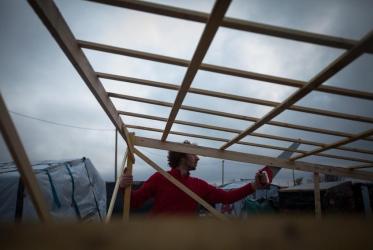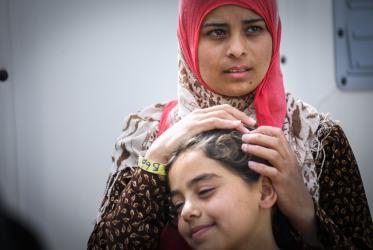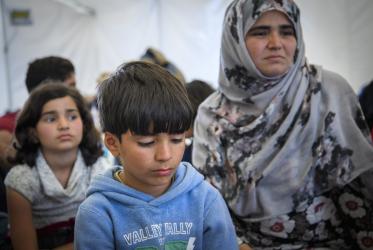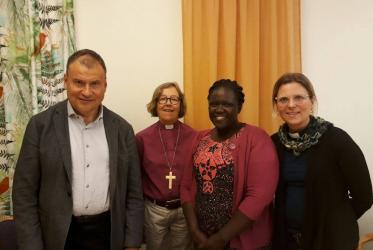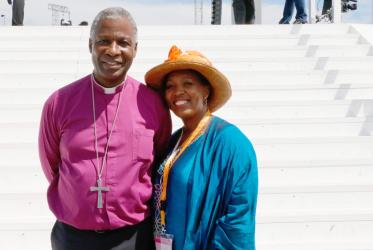Displaying 81 - 100 of 219
Creating a better future for Syrian-Armenian youth
29 March 2018
Konrad Raiser shares ecumenical journey of transformation
06 February 2018
Not just numbers, displaced people need to share their stories
01 February 2018
Conference explores Christian approach to borders
05 October 2017
Nordic churches embrace 'The Gift of Being'
15 September 2017
G20 summit: call to pray for peace in Hamburg
07 July 2017
Church in German state is a partner for refugees and society
20 December 2016
